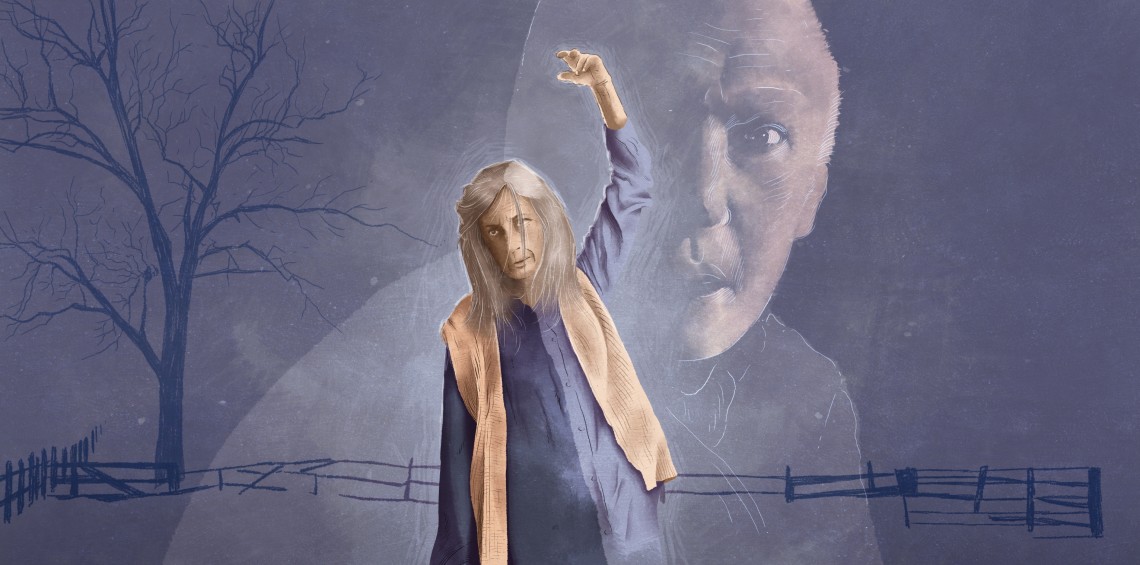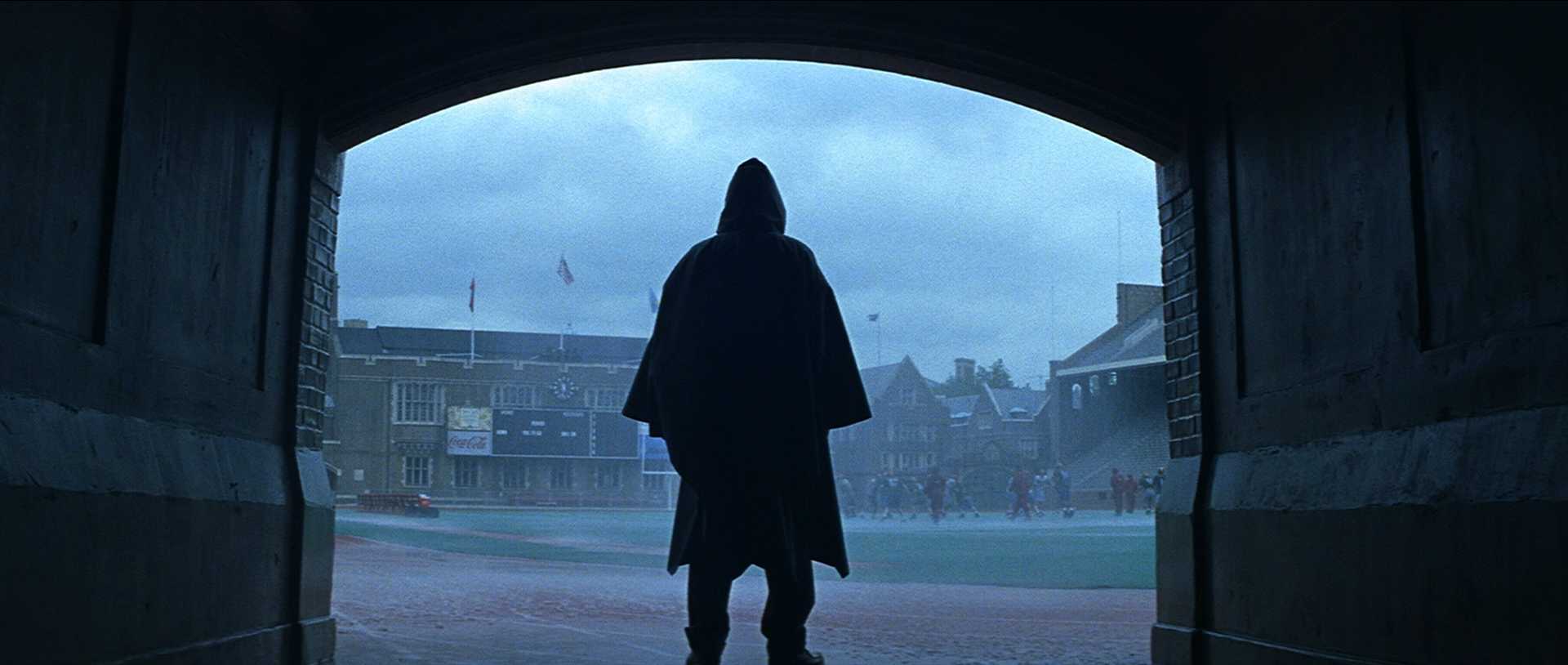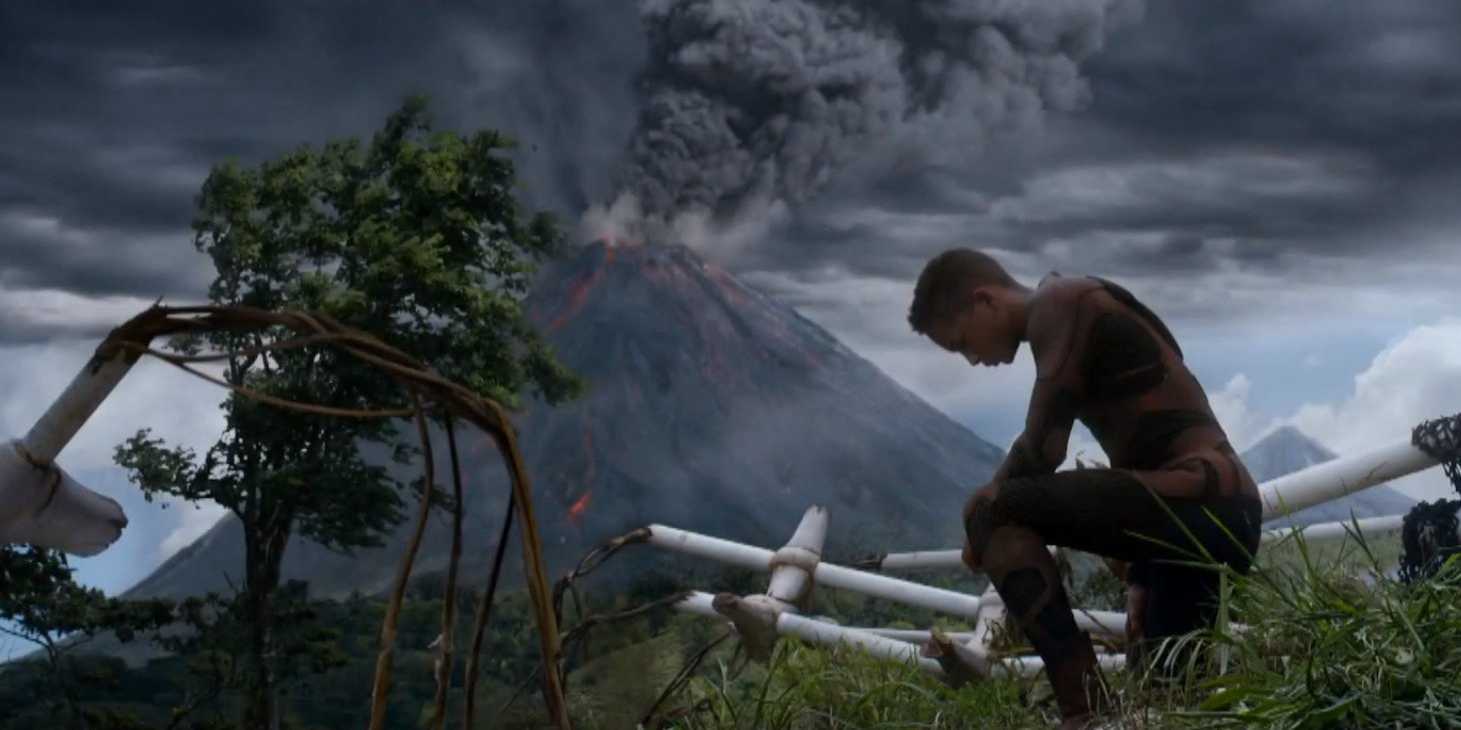There was a time when M. Night Shyamalan was not a joke: when each new film of his didn’t offer a better punch line; when you were sure something like the trailer for his latest film, The Visit, wasn’t meant to be funny; when his name wasn’t literally laughable when it appeared on a screen.
That time began in 1999, when the writer-director emerged out of nowhere with a film—The Sixth Sense—that suggested he was already a fully formed auteur. It wasn’t just the deftness with which he treated B-movie subjects with A-level execution that was noteworthy, but the old-fashioned patience and skill he brought to his compositions and storytelling. The remarkable confidence with which he wielded his craft made him a beacon of hope for cinephiles and a sensation with audiences. In three years, his films made $500 million in the U.S.; The Sixth Sense earned six Oscar nominations, including Best Picture, Best Director and Best Screenplay; his scripts sold for huge sums; and Newsweek declared him the next Steven Spielberg.
Then, famously, it all fell apart.
Everyone has their favorite explanation for Shyamalan’s downfall: He was a one-trick pony; he was over-dependent on twists; he let his unchecked ego compromise his filmmaking; he should have let others write his movies. Whatever the cause, Shyamalan’s films got progressively worse until his early work seemed more flukes than genuine accomplishments. By the time we got to The Last Airbender (2010), his films were almost unwatchable.
It was a turn of events nobody could have imagined—except, as it turns out, maybe Shyamalan himself.
It’s fascinating to go back to the writer-director’s early films not just because they remain artifacts of a different stage of Shyamalan’s career, but because, with hindsight, they seem to anticipate his current stage. The Sixth Sense, Unbreakable, and Signs are all about men who possess considerable skills and success, then fall from grace. They are men, in other words, who experience the same twist of fate Shyamalan did. In The Sixth Sense, Malcolm (Bruce Willis) is a child psychologist who, on the eve of receiving a prestigious award, is shot by a man he failed to help. In Unbreakable, David (Willis again) is an ex-college football player whose immense athletic talent is lost, which leads him to become a failed husband and father. Graham (Mel Gibson) in Signs is a beloved small-town preacher who loses his gift for comfort when he fails to hold onto his faith when his wife is killed in a car accident.
In these characters, Shyamalan imagined gifted men losing their purpose or abilities, and struggling with their failure. In that, it’s difficult not to see something of the path Shyamalan’s career has taken—right down to how Malcolm, David, and Graham possessed gifts that made them beloved, professionally and personally; when those gifts faltered, they lost their connection with those around them. It’s not unlike how Shyamalan’s waning output has ensured that any connection he once possessed with audiences has been compromised.
Before the collapse of his career, the continual repetition of narratives about men falling from on high to struggle with failure seemed no more than one of Shyamalan’s many thematic preoccupations. Now one can’t help but see something prophetic, or at least unconscious, being expressed. Granted, it may be hard to accept that a director who has said things like “I believe if I had unlimited time to practice, after two years, I’d be able to shoot with any NBA player” has an unconscious fear of failure. And there has been little public evidence that Shyamalan shows awareness he’s in a rough spot—whether he defends The Last Airbender by claiming kids love it or that critics didn’t get it because it was European. But ego and insecurity are symbiotic, the bravado of the former often covering up the vulnerability of the latter. Take an interview during which a reporter asked Shyamalan if he made a more commercial movie like Airbender in an effort to restore audiences’ faith in him. The director angrily responded, “I think if I thought like you, I’d kill myself.” Given our knowledge of Shyamalan’s ego, it’s easy to interpret those words as those of an overconfident man unwilling to consider failure as a possibility for him. Yet they could also easily be the words of a man who so deeply fears failure, he considers it equivalent to death.
The idea of thinking of Shyamalan as vulnerable may be difficult to reconcile with our long-held egomaniacal image of him. After all, if there’s one thing we identify as everything wrong with the director, it was the decision to cast himself in Lady in the Water (2006) as a writer whose work will inspire the world’s salvation after he’s killed and martyred. For most, it not only marked a point of no return, an unjustifiable bit of egotism that now gets mentioned in any article (including this one!) about the downward trajectory of Shyamalan’s career, but it has become the unshakeable image of the director’s career.
Except here too we see prophecy, at least once we decide not to mock it. No, Shyamalan has not (to my knowledge) saved the world, but he has seen the fate that Story (Bryce Dallas Howard) predicted to befall his character, Vick Ran: assassination from someone who hates his work. Shyamalan has seen the same angry dismissals of his work. And while no one has assassinated him, it’s difficult not to see a kind of existential assassination occurring when your name produces laughter, when all you’re seen as is a cautionary tale of Hollywood ego getting its comeuppance. If that seems like an exaggeration, recall how Shyamalan told the reporter if he believed audiences had lost faith in him, he’d kill himself. There’s also something to how Vick Ran is told his work will cause him injury, and he goes on with it anyway. Sure, Shyamalan imagining himself a martyr is still worth an eye-roll, but it also speaks to where the director’s career has gone since: carrying on in the face of criticism. He’s working on a second chance.
The Sixth Sense, Unbreakable, and Signs aren’t just about men who fail. They are about men who fail and then seek second chances so they can find redemption, or rediscover their purpose. It is, ultimately, the most powerful theme in all of Shyamalan’s films: Everyone gets a chance at redemption. As Malcolm says in The Sixth Sense, “I feel like I’m being given a second chance, and I don’t want it to slip away.” Sure enough, many of the main characters in Shyamalan’s films work hard to not let their chance to undo their failures slip away: Malcolm has a chance to save Cole in a way he didn’t save the man who shot him; Unbreakable’s David has a chance to become a good father and husband again if he accepts who he really is (a superhero); Signs’ Graham gets a chance to regain his faith and become a proper head of the family again. And they all succeed, finding their way back to do what they do best. Because Shyamalan, in his films, believes past mistakes can be rectified, and that redemption isn’t just a possibility, but a certainty.
The happy ending and certainty of redemption may not yet have its parallel in Shyamalan’s career, but it does in his efforts towards a second chance. We may make all the usual jokes in the lead-up to the release of The Visit, but if you look at what the director has done since Lady in the Water, it’s clear he’s changing and adapting. Since his failed fairy tale, Shyamalan hasn’t had a prominent cameo in any of his projects, nor do they feature any last-minute twists or surprises. He’s been relinquishing an ego-fueled stranglehold on his work, collaborating with Gary Whitta and Will Smith on After Earth, and working with a whole team for the TV show Wayward Pines, which he executive-produced. (He also directed the pilot.) While making the press rounds for the show and now The Visit, he’s indicating some buffering out of his ego (no doubt with PR guidance). Even his filmmaking is changing. Despite what he may have told that reporter, movies like After Earth or The Last Airbender are far more commercial in style than anything he’s made—stripped of many of the recognizable visual stylings of his earlier work. It’s hard to imagine Shyamalan now doing something as calm, subtle, and inventive as revealing Unbreakable’s David’s superheroic strength simply by placing the camera “on” some weights he’s lifting and letting it go up and down. Now we get CGI-heavy shots, or ones entirely devoid of the mise-en-scène of his first three films. As a Village Voice headline notes, Shyamalan has now just become another director, not an auteur.
None of these efforts have yet yielded great work, but it nonetheless represents an obvious course correction, an effort on Shyamalan’s part to somehow work his way back. It recalls a scene in Unbreakable where David asks Elijah (Samuel L. Jackson), “What am I supposed to do?” Elijah tells him, “Go to where people are.” So David goes to a train station and stands still in the middle of the concourse, holding out his hands slightly so that people can bump into them. He does so in an exploratory way, unsure what will happen, but hoping to connect with the people around him and get a sign of what he should do next. Shyamalan is now doing the same thing with his career. With projects like Wayward Pines, The Visit and his upcoming reteaming with Joaquin Phoenix, he’s going to where people are—TV, found-footage horror, admired actors—and reaching out, hoping to connect with audiences again and find a purpose for his gifts again.
At the end of Unbreakable, Elijah rhetorically asks, “Do you know what the scariest thing is?” Then he answers, “To not know your place in the world.” Ever since his career collapsed with Lady in the Water, M. Night Shyamalan lost his place in the cinematic world. Maybe with time he, like his heroes, will find it again.
—
Original illustration by Krishna Shenoi.




















10 thoughts on “How M. Night Shyamalan Lost His Place In The Cinematic World”
Indeed, he’s learning to pander by adapting to genres that are a little out of date, godspeed
This article plus all of the positive buzz for The Visit and Wayward Pines is making me believe in Shyamalan again. Very nice write up here. I used to be a huge fan of his when I was growing up. I even loved The Village for the most part and still do. It would be great to see him return to form.
Pingback: /Filmcast Ep. 333 – The Visit | iBiggestNews
Pingback: /Filmcast Ep. 333 – The Visit | Live Blog Post
Pingback: /Filmcast Ep. 333 – The Visit | Filmdot
Pingback: /Filmcast Ep. 333 – The Visit | 8a8
Weird how the Hollywood press single out M.Knight, but fail to point out the total shit that other directors puke out.
It’s also weird that Hollywood has no brown directors whatsoever.
Weird huh… Couldn’t be connected right ?
Uh… Spike Lee? Antoine Fuqua? John Singleton? Ernest Dickerson? Lee Daniels? Steve McQueen? No one is comparing M. Knight to other directors who “puke out shit” but rather to his own, earlier films.
To both: is M. NIGHT.
What frustrates me about MNS is that he became the worst director when it comes to something that he was the best at… Allowing us to take a journey with a character where they initially do not believe something because it is outrageous (“I’m s superhero”, “he see’s dead people”, “there are aliens in my cornfield”) and, step by step, they come to believe it. We see the process, we experience it, and it was really (to me) the best part of his early films. What Campbell called “The Hero’s Journey”.
Then, with Lady in the Water, Cleveland Deep (Paul Giamatti) immediately believes the absurd tale that Story (Bryce Dallas Howard) tells him, and for no reason whatsoever. Because he does not go on the step-by-step journey of accepting the fable as real, neither do we, and the narrative simply falls apart.
In The Village, he sidesteps the issue entirely. Same thing in The Happening. How does such a compelling storyteller seeming completely forget how to tell his kind of story?